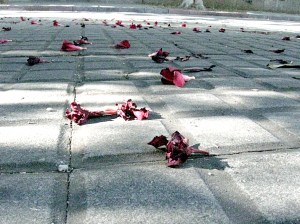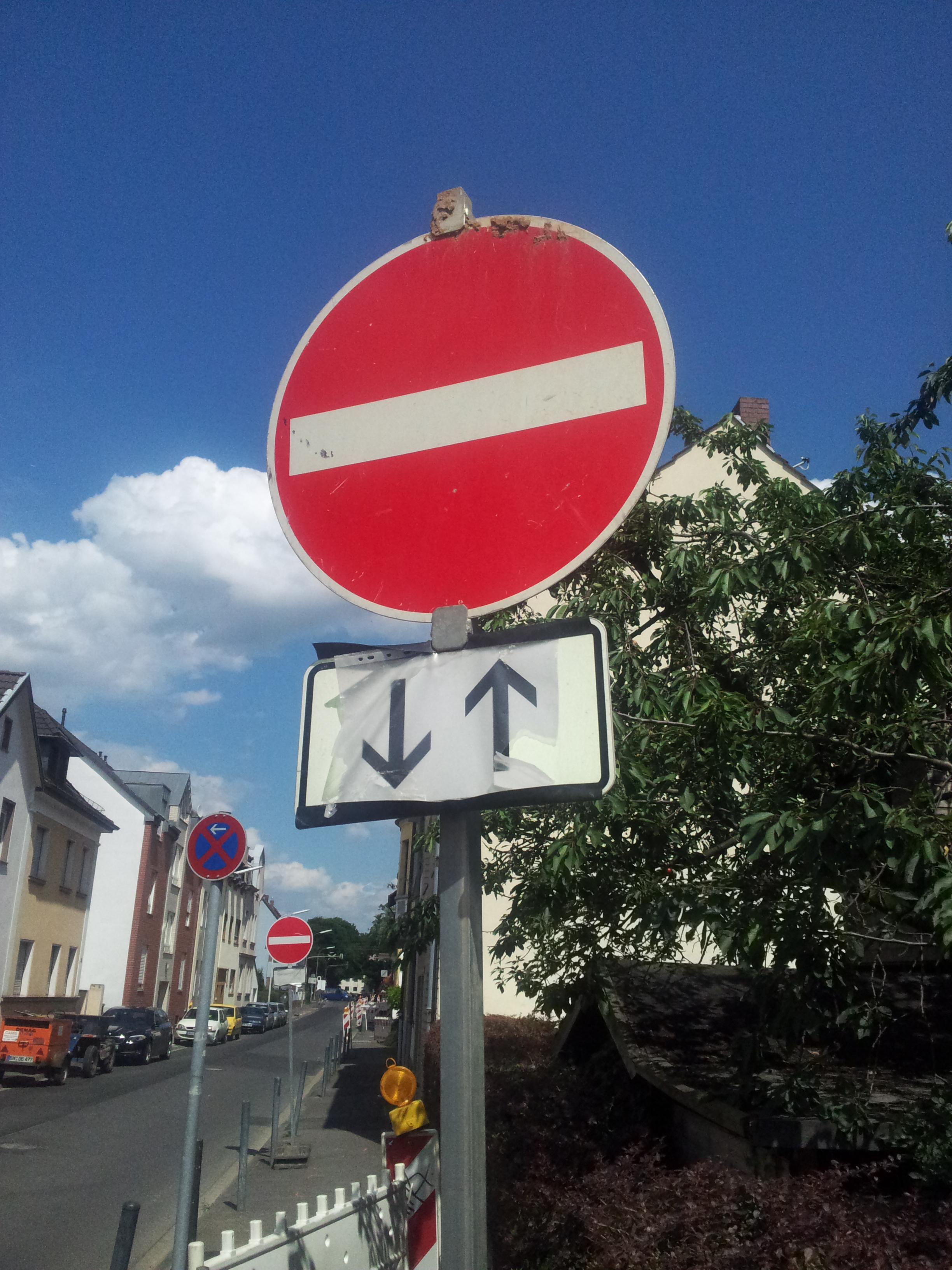Jenny Enochsson, editor of Tistelblomma, an online journal based in Sweden, asked me a few questions…

Jenny Enochsson, editor of Tistelblomma, an online journal based in Sweden, asked me a few questions…

Scarecrow Considers the Afterlife
Gathering threads, I join them with a central
knot, producing a sunburst flower or constellation
of ley lines spreading forth and connecting their
tenuous truths – megalith to fjord, solstice to
dodmen and feng shui, suppositions entwined
and spat out. And who’s to say which alignment
stands taller than the next, which rut, which energy,
defines our direction? When I cease to be, will I
remain or dissipate, return in another form or
explode and scatter throughout the universe, the
residue of me sizzling along the starways for eternity
or perhaps just the next twenty minutes. It is clear
that I possess no heart, no internal organs. My spine
is lattice, my skin, fabricated from jute. Eviscerate
me and straw will tumble out. I do not bleed. Yet
the crows consult me in secret and conduct their
daily mercies, and I think and dance and dream
and wonder and hope. Oh, what I hope.
* * *
This was first published at Eclectica in July 2016, with two companion pieces.
The transliteration on Chinese-poems.com reads:
Spring sleep not wake dawn
Everywhere hear cry bird
Night come wind rain sound
Flower fall know how many

Onions
My knife never sings but hums instead when withdrawn from its block, a metallic whisper so modest only the wielder may hear it. Or perhaps the dog, who seems to enjoy the kitchen nearly as much as I. A Japanese blade, it’s a joy to hold, perfectly balanced, stainless steel-molybdenum alloy, blade and handle of one piece, bright, untarnished, and so sharp as to slide through, rather than awkwardly rupture and divide, its next task on the board.
We’ve never counted the chopped and rendered onions, the fine dice, slender rings and discarded skins, but if we could gather all the corpses we’ve produced together over the years, we’d form a monument to our work, cooperation of metal and man, a Waterloo mound in memory of the bulbs laid there, the planning involved, the missteps and serendipity, and the tears shed along the way.
The blade doesn’t care. It is. It works. It moves things, it lifts, it parts them, and in return is cleansed, and later, in the quiet room, maintains its edge with a silvery rasp, angled steel on steel in a circular motion, over and over, until finally it hums its way back into the block. But it never sings.
“Onions” last appeared here in December 2019. Hmm. This reminds me (again) that I need to sharpen knives…
Alas, my bout with COVID-19 has rendered me incapable of, or unwilling to, cut into onions. Parosmia has reared its ugly head, and now onions, garlic, bacon, peppers, arugula and hoppy ales among other beloved foods emit odors resembling a mix of raw sewage, mildewed peat moss and burnt wood. Ah, 2020!
How to Write a Poem
Learn to curse in three languages. When midday
yawns stack high and your eyelids flutter, fire up
the chain saw; there’s always something to dismember.
Make it new. Fear no bridges. Accelerate through
curves, and look twice before leaping over fires,
much less into them. Read bones, read leaves, read
the dust on shelves and commit to memory a thousand
discarded lines. Next, torch them. Take more than you
need, buy books, scratch notes in the dirt and watch
them scatter down nameless alleys at the evening’s first
gusts. Gather words and courtesies. Guard them carefully.
Play with others, observe birds, insects and neighbors,
but covet your minutes alone and handle with bare hands
only those snakes you know. Mourn the kindling you create
and toast each new moon as if it might be the last one
to tug your personal tides. When driving, sing with the radio.
Always. Turn around instead of right. Deny ambition.
Remember the freckles on your first love’s left breast.
There are no one-way streets. Appreciate the fragrance
of fresh dog shit while scraping it from the boot’s sole.
Steal, don’t borrow. Murder your darlings and don’t get
caught. Know nothing, but know it well. Speak softly
and thank the grocery store clerk for wishing you
a nice day even if she didn’t mean it. Then mow the grass,
grill vegetables, eat, laugh, wash dishes, talk, bathe,
kiss loved ones, sleep, dream, wake. Do it all again.
* * *
“How to Write a Poem,” is included in Indra’s Net: An International Anthology of Poetry in Aid of The Book Bus, and has appeared on the blog as well.
All profits from this anthology published by Bennison Books will go to The Book Bus, a charity which aims to improve child literacy rates in Africa, Asia and South America by providing children with books and the inspiration to read them.
Available at Amazon (UK) and Amazon (US)
Baking Bread
I would knead you in the afternoon,
in the warmth of a still room,
starting high at the shoulders,
one finger sliding down your spine,
my lips following, tracing the path
of a hummingbird’s flight. Oh, my love,
circumstance and distance, floods and
wildfires, will never truly douse our light.
I wait as the dough rises, and think
in the languages of yeast and water
and flour and salt, how my hands
will feel at your waist, how our day
falls into night, our love firming,
ever expanding through the rising heat.
“Baking Bread” first appeared in Ristau: A Journal of Being in January 2019. Many thanks to editor Bob Penick for taking this piece.
Self-Portrait as Never
Within the unknown or could-have-been,
this stance requires certainty, the ability
to stand upright, rooted, implacable,
relentless in the is and the no in time.
I dream of faith, despite knowing its
secrets. Atoms swarm, seed heads explode.
Rivers reverse, the galaxy rots, and at the
center, we fold our arms across our chests
and deny or accept at whim, leaving behind
no footprints, only lost words, some dust.
“Self-Portrait as Never” was first published in After the Pause in June 2019. Thank you, Michael Prihoda, for accepting this piece.
Galveston, 1900
First the wind, then a tide like no other
uprooting the calm,
a visage tilted back in descent
as if listening for the aftermath.
And later, the gardener’s lament
and the building’s exposed ribs,
light entering the eternal
orchard, nine children tied to a cincture.
Not even the earth could retain its bodies,
and the sea remanded those given to its care.
“Galveston, 1900” first appeared here in January 2015. Last February it was accepted for publication in an anthology to be published in 2020, but alas, I’ve just been informed that the publisher is unable to move forward on it. Such is the literary life.

One
I am Brahma
the straight line, the upright being,
fire that flares,
seed without end, manifold
self beyond all
polarity, radiating sun:
the all.
Philosophers considered one a non-number,
generatrix of all that follows.
Other.
The singularity. The lone.
From the Indo-European oi-qos we achieve solitude,
while the collective meaning of one derives from the Sanskrit sam.
United in itself, it changes nothing,
becoming everything.
On its side it represents the horizon.
Alone is all-one.
The Latin non is one negated, as is the German nein.
Symbol of intellect, the Hindu moon glows wide.
Atomic number of hydrogen, magician’s numeral,
monad and eccentric, I bear the empty product.

“One” last appeared here in December 2019.
Letter to Geis from This Side of the Glass
Dear Greg: I can’t help but think about windows, their
function, their meanings, intended and otherwise, how
they block some entities but allow others entrance. A
black vulture feather lies just on the other side of this
pane, but the laws of material and physics prevent me
from reaching through and claiming it. Maybe I’d
sharpen the end, dip it into squid ink and write letters.
Or not. Cephalopods are scarce in the hill country,
unlike carrion birds, wild hogs and scorpions, and frankly,
ballpoint pens require less maintenance. Lately, the
opaque has redirected my attention — no matter which
government agency speaks, I feel surrounded by their
pseudomorphs, those little indistinct clouds of mucus and
dark pigment released to confuse and numb me. A common
occurrence, I hear, and all the more frightening for it. I
think of where we’re headed, collectively and individually,
and even knowing that our destination remains unchanged
offers small comfort. One foot at a time, the steps matter,
and though it appears we won’t share those planned brews
in Bandera, I’ll chuckle over our last meeting there and
dream up a conversation about futility and compromise,
and yes, success. I’ve just spent twenty minutes trying to
help a yellow jacket escape. It wouldn’t leave the glass even
after I left the door ajar, allowing a fly to enter. Instead,
it gazed out at the hazy morning, seeking a way through
refraction’s oblique path. Finally, shepherded with my bare
hand, it reluctantly skittered to the jamb, and I coaxed it
the final few inches by pushing it with the door. Such
are my days. A little faith, some hope, luck and a great
unknowing. This window seems cloudy, or is it just
my eyes? I miss you, buddy, as do the hills and the sky
and everything nestled and bustling between. Bob
This first appeared in May 2020 in the Taos Journal of International Poetry & Art. D.G. Geis was a friend, a larger than life poet, and a fellow Texan. We were both finalists for the Slippery Elm poetry prize in 2017, and after learning that we didn’t win, decided to have a “losers’ lunch” in Bandera, Texas, the closest town to our respective rural properties. Much laughter ensued, and we made plans to get together for a beer in the coming months. Alas, that was not to be.